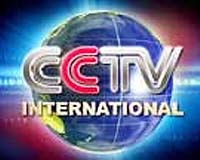
Chinese State Media Goes Global: A Great Leap Outward for Chinese Soft Power?
Publication: China Brief Volume: 9 Issue: 2

Even as the People’s Liberation Army (PLA) is projecting hard power across the four corners of the earth, the Chinese Communist Party (CCP) is mapping out a multi-pronged strategy to publicize globally the apparent viability of the “China model.” The administration of President Hu Jintao is spending around Renminbi (RMB) 45 billion ($6.58 billion) to boost what party insiders call “overseas propaganda” (waixuan gongzuo). Prominent state media including CCTV and Xinhua News Agency will vastly enhance programs and news feed in different languages for Western and Asian audiences, and an English news channel modeled upon Al Jazeera is set to let the world get the Chinese take on issues and events ranging from politics and finance to culture and religion.
Reports by the Hong Kong and Western media last week said that CCTV, Xinhua, and the CCP mouthpiece People’s Daily could each receive up to RMB 15 billion ($2.19 billion) for ambitious schemes geared toward enhancing China’s international influence. CCTV, which opened French and Spanish channels before last summer’s Beijing Olympics, is expected to offer services in Russian and Arabic later this year. Xinhua, which has news bureaus in dozens of major cities around the globe, is reportedly planning to establish a 24-hour English news channel to compete with CNN and BBC. In the run-up to the Olympics, Chinese media—and nationalist Chinese youth—had vehemently denounced CNN and other Western news organizations for distorting the “true picture” of Chinese policies regarding sensitive areas such as Tibet and human rights. The Global Times, which is an offshoot of People’s Daily, is readying an English edition in the near future. This would become China’s third English-language newspaper (Reuters, January 13; South China Morning Post [Hong Kong], January 12; AFP, January 14).
As with major efforts in other arenas, this aggressive projection of soft power is initiated by a marathon of speeches by CCP senior cadres. Earlier this month, CCP Politburo Standing Committee member Li Changchun told officials attending a national conference on propaganda and ideology that they must “vigorously sing the praises of the achievements of the CCP, socialism, the reform policy, and [the glories of] the great motherland.” Li called for “assiduous efforts to augment the soft power of Chinese culture, and to further elevate our national image.” Wang Chen, who heads the party’s overseas propaganda division, added that media and cultural units should beef up their “capacity to broadcast, to positively influence international public opinion and to establish a good image for our nation.” “We must strive to set up a top-line global media arm that covers the entire world and which is multi-lingual, enjoys a large viewership, has a large volume of information and is strongly influential,” Wang indicated (People’s Daily, January 6; Xinhua News Agency, January 9; AFP, January 14).
Plans to extend the global reach of Chinese norms—and the Chinese model of development—complements PLA gambits such as sending naval vessels to the Gulf of Aden and building aircraft carriers and other state-of-the-art hardware (China Brief, January 12). This ‘Great Leap Outward’ of Chinese soft power may also be an effort to exploit the precipitous drop in the esteem of American-style, laissez-faire capitalism in the wake of the financial tsunami. While the Chinese economy has also been hurt particularly due to a shrinkage of exports to the United States and the European Union, the Hu leadership is convinced that the sorry state of the American model has thrown into sharp relief the superiority of the Chinese way of doing things. According to a recent commentary by the Xinhua News Agency, the results of 30 years of Chinese reform have amounted to “the realization of innovation and creativity on a gargantuan scale … nothing less than an epic poem about expeditious development.” “Not only ordinary people but the media and academia in China and abroad have paid close attention to ‘the China miracle’ or ‘the China model’,” proclaimed the party mouthpiece (Xinhua News Agency, December 28, 2008).
Similar sentiments are being echoed by Beijing’s big-name scholars. For Peking University political scientist Yu Keping, the China model has “enriched our knowledge about the laws and paths toward social development and promoted the multi-pronged development of human civilization in the age of globalization.” Yu, who sometimes advises President Hu on political issues, said that the Chinese approach carried a special significance for developing countries because “both the ‘East Asian model’ and the ‘Latin American model’ have lost their effectiveness in recent years.” According to Central Party School Professor Zhao Yao, the China model is worth maximum exposure because “it has saved the world socialist movement.” “Through the reform and open door policy of China, new vistas have been opened up for socialism,” Zhao noted (Beijing Daily, November 18, 2008; Xinhua News Agency, December 28, 2008).
There is little question that particularly since most private and semi-governmental international news and cultural organizations are downsizing due to harsh economic realities, China’s multi-billion RMB propaganda putsch will catch eyeballs galore. Whether the worldwide audience will buy the product is another question. A just-released survey by the Chinese Academy of Sciences points out that based on data up to 2005, the influence of Chinese culture is ranked seventh in the world, behind that of the United States, Germany, Britain, France, Italy and Spain (Xinhua News Agency, January 18)—and CCP cadres and experts seem convinced that Chinese soft power will mushroom in the wake of the proliferation of publicity materials. According to Dong Manyuan, a senior researcher at the China Institute of International Studies (a Chinese Foreign Ministry think-tank) Chinese soft power is different from—and potentially more appealing than—Western brands because the former exults a wholesome sense of “peace and harmony.” “Characteristics of Chinese soft power include respect for heterogeneity of world [cultures], openness and tolerance, friendliness and inclusiveness … respect for politeness and benevolence” (Xinhua News Agency, January 18; Outlook Weekly [Beijing], December 8, 2008).
However, detractors of the “China model,” including the Chinese approach to overseas propaganda, have cited instances where Chinese leaders—and censors—have failed to demonstrate openness, tolerance or inclusiveness. In a speech late last year summarizing the achievement of 30 years of reform, which underpins the apparent virility of the country’s economy and culture, President Hu took an uncompromising stance while underscoring the imperative of cleaving to Marxist orthodoxy. The supremo vowed that the CCP would uphold the “Four Cardinal Principles” of stern party control and “democratic proletarian dictatorship.” Hu said that the CCP would do whatever it takes to “boost its ability to guard against changes [to a non-socialist system] and to withstand risks” such as socio-political instability. And he delivered a stern warning to liberal cadres who favor a faster pace of political reform as well as the adoption of “universal values” such as elections and rule of law. Hu warned that the leadership “will never take the deviant path of changing the flag and standard [of the party]” (People’s Daily, December 19, 2008). Hu’s harsh rhetoric would seem to be at odds with the image of a benevolent, harmonious and tolerant China that the party’s legions of publicists are so keen to project.
In an article on the difficulties facing the global marketing of Chinese values and culture, Tsinghua University media scholar Li Xiguang noted that “the soft power of a country manifests itself in whether it has the power to define and interpret ‘universal values’ such as democracy, freedom and human rights.” Li pointed out that in order to enhance the attractiveness of ‘socialism with Chinese characteristics’, “we must let the whole world hear the stories that Chinese citizens have to tell about their democracy, liberty, human rights and rule of law” (People’s Daily net, January 5). The problem, of course, is that intellectuals bold enough to air their views on democracy and political reform have been harassed if not incarcerated by the authorities. This is true of the dozens of well-known writers and professors who earlier this month signed a manifesto called Charter 08, which asked the CCP leadership to do nothing more than letting Chinese enjoy civil rights enshrined in United Nations covenants (China Brief, December 19, 2008).
Moreover, even though state media are all guns blazing in expanding their coverage and broadcasts overseas, the Department of Propaganda and other departments have tightened their grip on Chinese publications and websites that have apparently run afoul of the censors. A just-released Human Rights Watch World Report pointed out that at least 26 Chinese journalists remain in prison. “The Chinese government continues to strictly control journalists, and sanctions individuals and print and online media which fail to comply with extremely restrictive but unpredictably enforced laws and regulations,” the report said [1]. Since late last year, seven departments including the Public Security Ministry and the State Council Information Office have closed down more than 726 websites that are said to be pornographic. Yet famous blogger Wang Junxiu said that the crackdown could be more about taming the Chinese internet than eradicating smut. Wang, a Charter 08 signatory, indicated that authorities wanted to “tighten up [the media] in response to all the sensitive dates in 2009” such as the 20th anniversary of the 1989 Tiananmen Square massacre (Reuters, January 5; AFP, January 16).
Doubts have also been raised by Chinese intellectuals about the quality—and integrity—of state media including CCTV. Earlier this month, 22 writers and lawyers started a Net-based movement asking Chinese nationwide to stop watching the station. The campaign, entitled “Say no to CCTV, say no to brainwashing,” accused its news programs of “focusing only on bright side” while reporting on domestic affairs, and doing the opposite about events in foreign nations. The petitioners also faulted the network for running too many historical dramas whose message was that citizens should profess undying loyalty to the emperor. So far, neither CCTV nor other Chinese media have reported on this unprecedented challenge to the CCP media establishment. When asked by Hong Kong reporters to comment on the issue, a CCTV spokesman said only that his organization and its programs were “well-liked by the great majority of Chinese” (BBC news, January 13; Ming Pao [Hong Kong] January 14; CableTV News [Hong Kong], January 14). Unless these and other questions about censorship and brainwashing are answered satisfactorily, however, China’s state media, no matter how well-endowed financially, can hardly win a global following, let alone help Beijing develop soft power that is commensurate with that of a quasi-superpower.
Notes
1. ‘World Report 2009’, Human Rights Watch, https://www.hrw.org/en/node/79301.





